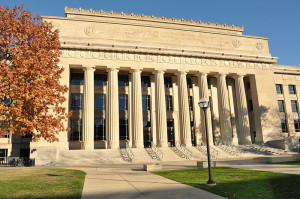 Ann Arbor, Michigan — A Christian club at the University of Michigan has been ousted from campus for refusing to change its constitution, which requires that its leaders be Christians.
Ann Arbor, Michigan — A Christian club at the University of Michigan has been ousted from campus for refusing to change its constitution, which requires that its leaders be Christians.
InterVarsity Christian Fellowship states that it was informed by campus officials that its policies conflicted with the university’s policies, which prohibit discrimination.
“The university is sending the message that religious voices are suspect and should be marginalized,” Greg Jao, national field director for InterVarsity, told reporters. “I think it sends the message that the university does not understand the nature of religious beliefs and the convictions of religious students.”
The university asserts, however, that all student groups must sign a non-discrimination agreement and must submit their constitution for review.
“At this point in the current school year, Asian InterVarsity Christian Fellowship has not completed this process,” the University of Michigan wrote in a written statement.
The conflict between InterVarsity and the university reportedly began in December when campus officials suggested that the group revise its constitution, which mandates that all leaders sign a statement of faith. InterVarsity refused.
“For us, there’s no other option than to hold to the tenets of our faith,” stated member Sara Chang. “We want to model a lifestyle of integrity. Holding the Bible as the inspired, divine word of God and seeing the commands for us to choose leaders who have a vibrant faith in Jesus is obviously something very important that we want to continue to uphold.”
Because the group would not back down on its desire to only appoint Christians as leaders, the university decided to revoke InterVarsity’s official recognition. Now that the group is no longer recognized, it must find another location to meet off-campus as the university has barred the Christians from meeting on the premises. InterVarsity states that it believes the trend may sweep throughout the state.
“The sad place that we’ve arrived at is that certain campuses in pursuit of tolerance and diversity are now saying they will use those standards to discriminate [against] and marginalize viewpoints they disagree with,” Jao said. “I can’t imagine the Muslim Student Association saying you don’t have to be a Muslim to help lead our group. … I think the university’s decision will impact any religious group that’s being honest about their leadership criteria.”
In the meantime, members of InterVarsity are filing a formal appeal with the school in hopes that they will reconsider their decision.
“It is sad,” Chang said. “But I do have a lot of hope.”
Photo: Andrew Horne
Become a Christian News Network Supporter...


